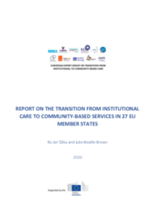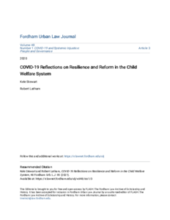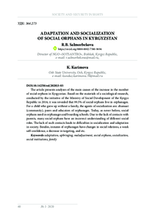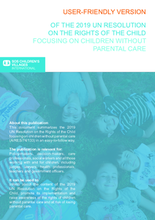Displaying 231 - 240 of 946
Based on the information gathered throughout the course of the Opening Doors for Europe’s Children campaign, this final report first reflects on: (1) the rationale for the campaign and how it operated; (2) the progress towards child protection system reform across campaign countries as well as the developments at the EU level; and (3) the lessons learnt from the campaign and some final recommendations to the European Union.
The aim of this report was to collate information about policies and plans, changes over time, strengths and areas of concerns relevant to advancement in deinstitutionalisation in 27 EU countries and for six target groups: adults with disabilities, adults with mental health problems, children (including children with disabilities), unaccompanied or separated migrant children, homeless persons and older adults.
The Center for the Study of Social Policy (CSSP) and the University of Houston Graduate College of Social Work have collaborated to create the upEND movement, a grassroots advocacy network designed to tap into work already being done and spark new work that will ultimately create a society in which the forcible separation of children from their families is no longer an acceptable solution for families in need.
Focusing on three critical facets of the U.S. child welfare system — reporting and investigating maltreatment, placement and other system metrics, and permanency — this Essay explores how the pandemic impacts the child welfare system and how the system should respond.
This chapter traces and explains responses to deinstitutionalisation reforms in the Russian regions. Three parallel policy shifts are taken into account: deinstitutionalisation (DI), public sector reform, and social provision reform.
The aim of this paper is to indicate threats and possibilities as regards the functioning of the foster care system and the process of adult care leavers’ gaining independence.
The authors of this chapter from Reforming Child Welfare in the Post-Soviet Space introduce the ongoing child welfare reforms in Russia and consider the international and national context, as well as the main drivers of these reforms and their current results.
In partnership with the University of Houston Graduate College of Social Work, the upEND movement works to create a society in which the forcible separation of children from their families is no longer an acceptable solution for families in need.
This article presents analyses of the main causes of the increase in the number of social orphans in Kyrgyzstan.
This document summarizes the 2019 UNGA Resolution on the Rights of the Child focusing on children without parental care (A/RES/74/133) in an easy-to-follow way.






